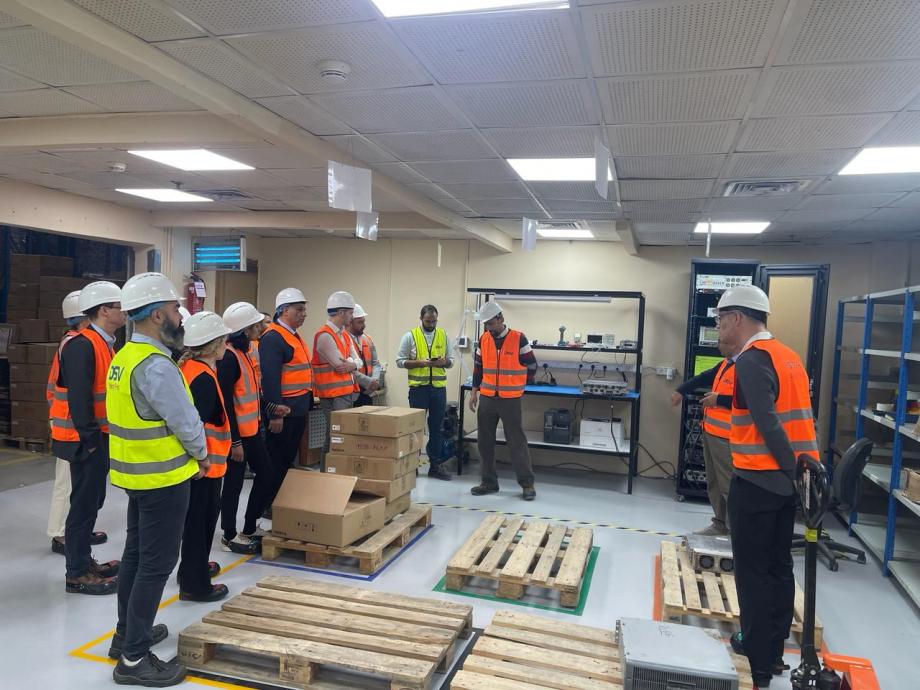
UNIDO, Chatham House and Circle Economy Foundation as global partners of the Switch to Circular Economy Value Chains (SWITCH2CE) project, joined a mission in Egypt to meet with local partners and coordinate on the upcoming project activities in the country. In Egypt, SWITCH2CE will support the circular transition in the ICT and electronics sector, through a pilot implemented with private sector partners Orange, Nokia and Cordon. The pilot will develop a high-quality standard secondary market for mobile devices and network/IT.
Number of meetings were conducted with different entities such as the EU Delegation to Egypt, Ministry of Trade and Industry, Ministry of International Cooperation, Ministry of Communication and Information Technology, Ministry of Environment, Orange Egypt, Nokia, DSV Egypt, Industrial Development Authority (IDA), National Telecommunication Regulatory Authority, Suez Canal Economic Zone (SCZONE), National Telecommunication Institute (NTI), Electronic Research Institute (ERI), CEDARE - Centre for Environment and Development for the Arab Region and Europe and e-Waste Recyclers Association.
The ICT/electronics pilot in Egypt aims to support the adoption of circular economy practices, setting up a local ecosystem to extend the ICT and Electronics products lifespan, raising awareness on circular economy benefits for all and creating local capacity development opportunities. The pilot involves establishing two refurbishment centres, one for refurbishing network equipment and will be located at 6th of October industrial area and the other for electronics- mobile devices as 1st stage- and located at SCZONE Ain Sokhna.
In addition, SWITCH2CE will contribute to building an enabling environment through policy and regulatory framework analysis for Egypt & policy and regulatory recommendations; Ecosystem mapping and analysis of the ICT and electronics value chain in Egypt, and mapping of the technical vocational education and training (TVET) landscape in Egypt.
Egypt's e-waste generation represents 20% of the total e-waste in Africa with 585.8 kt, as per data from 2019. Less than 5 percent of Egypt’s e-waste is recycled by authorized entities. Currency devaluation and consumer price inflation are hitting the affordability of new devices.
The readiness and support by government and other local partners for the project is in place and they are providing recommendations related to pilot activities, as well as the policy aspect and green financing opportunities and needs. The ICT and Electronics value chain in Egypt is perceived as an ideal opportunity for a transition towards circular economy in the country and the region.